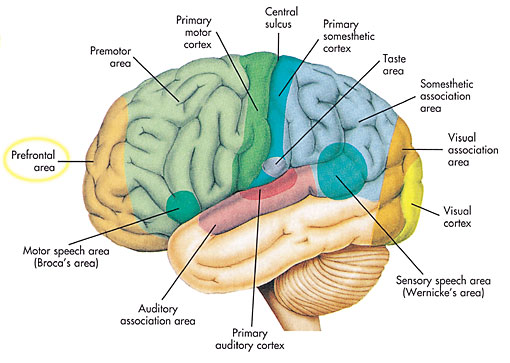
The human brain is a 3-pound (1.4-kilogram) mass of jelly-like fats and tissues—yet it's the most complex of all known living structures. Up to one trillion nerve cells work together and coordinate the physical actions and mental processes that set humans apart from other species.
Photograph by Fred Hossler/Getty Images


A rear view of the skull reveals the brain and the cervical spinal cord, which function together as the central nervous system. The remarkable apparatus uses motor neurons to control the body's many muscles and enables humans to perform myriad physical activities.
Image by 3D4Medical.com/Getty Images

The human brain may contain up to one trillion neurons. These nerve cells are interconnected, as shown in this microscopic image, so that they can transmit electrical impulses—and information—to other cells.
Image by 3D4Medical.com/Getty Images